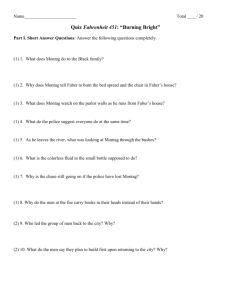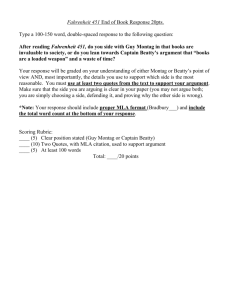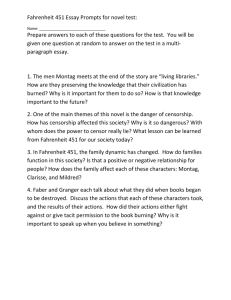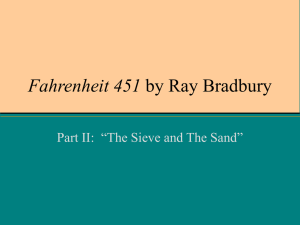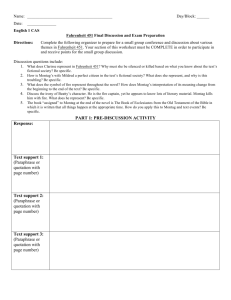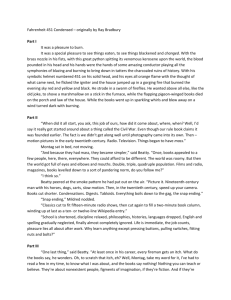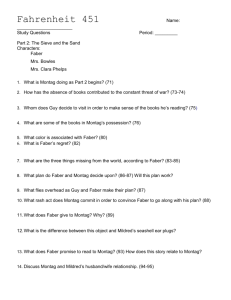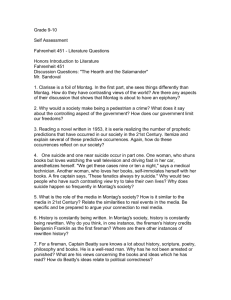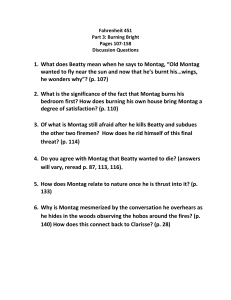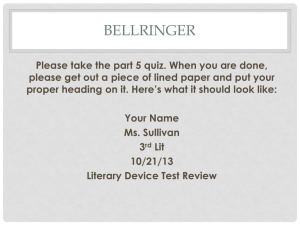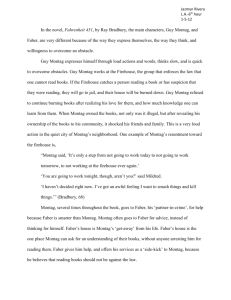1-Fahrenheit 451 Part 2 Test
advertisement
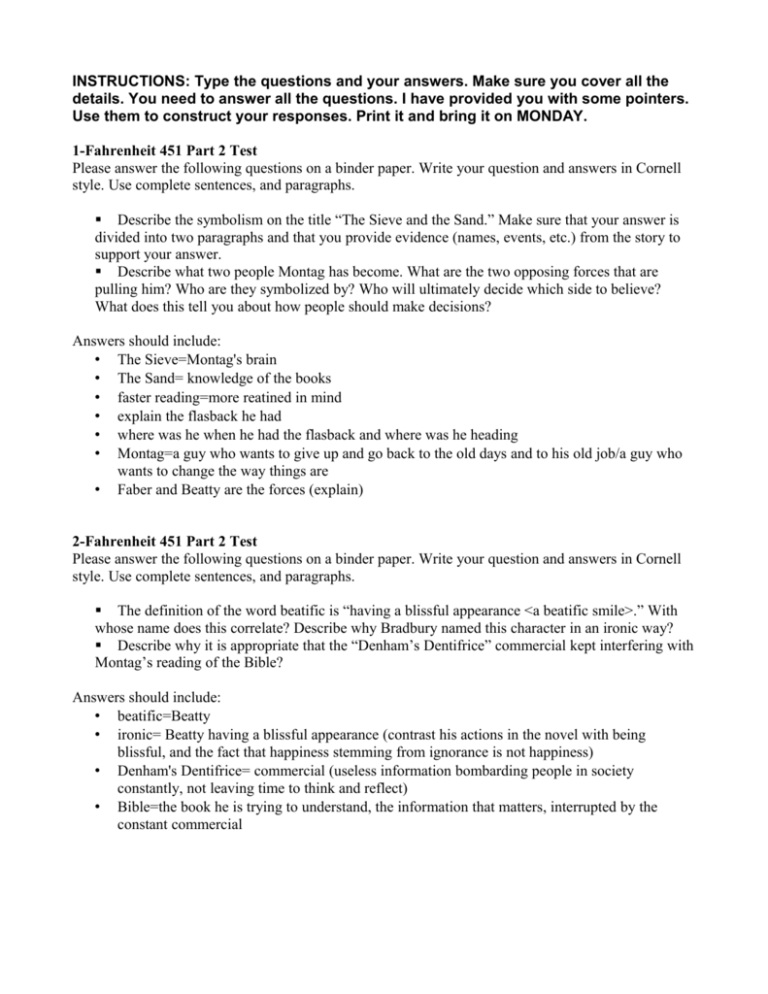
INSTRUCTIONS: Type the questions and your answers. Make sure you cover all the details. You need to answer all the questions. I have provided you with some pointers. Use them to construct your responses. Print it and bring it on MONDAY. 1-Fahrenheit 451 Part 2 Test Please answer the following questions on a binder paper. Write your question and answers in Cornell style. Use complete sentences, and paragraphs. Describe the symbolism on the title “The Sieve and the Sand.” Make sure that your answer is divided into two paragraphs and that you provide evidence (names, events, etc.) from the story to support your answer. Describe what two people Montag has become. What are the two opposing forces that are pulling him? Who are they symbolized by? Who will ultimately decide which side to believe? What does this tell you about how people should make decisions? Answers should include: • The Sieve=Montag's brain • The Sand= knowledge of the books • faster reading=more reatined in mind • explain the flasback he had • where was he when he had the flasback and where was he heading • Montag=a guy who wants to give up and go back to the old days and to his old job/a guy who wants to change the way things are • Faber and Beatty are the forces (explain) 2-Fahrenheit 451 Part 2 Test Please answer the following questions on a binder paper. Write your question and answers in Cornell style. Use complete sentences, and paragraphs. The definition of the word beatific is “having a blissful appearance <a beatific smile>.” With whose name does this correlate? Describe why Bradbury named this character in an ironic way? Describe why it is appropriate that the “Denham’s Dentifrice” commercial kept interfering with Montag’s reading of the Bible? Answers should include: • beatific=Beatty • ironic= Beatty having a blissful appearance (contrast his actions in the novel with being blissful, and the fact that happiness stemming from ignorance is not happiness) • Denham's Dentifrice= commercial (useless information bombarding people in society constantly, not leaving time to think and reflect) • Bible=the book he is trying to understand, the information that matters, interrupted by the constant commercial 3-Fahrenheit 451 Part 2 Test Please answer the following questions on a binder paper. Write your question and answers in Cornell style. Use complete sentences, and paragraphs. What is Caesar’s Praetorian Guard and how do books function like them? Describe the conversation between Mrs. Phelps, Mrs. Bowles and Mildred. What were the three topics they talked about? For each of those topics, describe why Montag got angry. Also, describe what was Montag’s final reaction? How did that end? Answers should include • Ceasar's Praetorian Duard= while protecting him, reminding Caesar his mortality despite all his power • books= remind us how much we may not know, sometimes challenge us, show us that there is more to understand, do not let us get boastful 4-Fahrenheit 451 Part 2 Test Please answer the following questions on a binder paper. Write your question and answers in Cornell style. Use complete sentences, and paragraphs. Describe the two events that show Faber’s cowardice in the story. Describe what Faber was hiding in his bedroom and describe how that is going to help them in carrying out their plan? Answers should include • event one= when laws against books first passed, he kept quiet, fearing for his life, • event two= ear transmitter (when, why, how, where) 5- Fahrenheit 451 Part 2 Test Please answer the following questions on a binder paper. Write your question and answers in Cornell style. Use complete sentences, and paragraphs. Describe the first plan that Faber and Montag came up with. Why did Faber think that it would not work? Describe Montag’s reaction that changed Faber’s mind about the plan. Describe the three things that Faber say are missing in Montag’s life. Make sure that your answers are divided into paragraphs and that you provide evidence (names, events, etc.) from the story to support your answer. Answers should include • Planting books in firemen's houses (how, why, who) • firemen are not the problem. Society is.(who said this, why) • starting ripping the pages of the bible (who does this, why) • changes his mind (who, why) • Three things= quality of information, leisure to reflect on it, freesom to act on it • explain each

